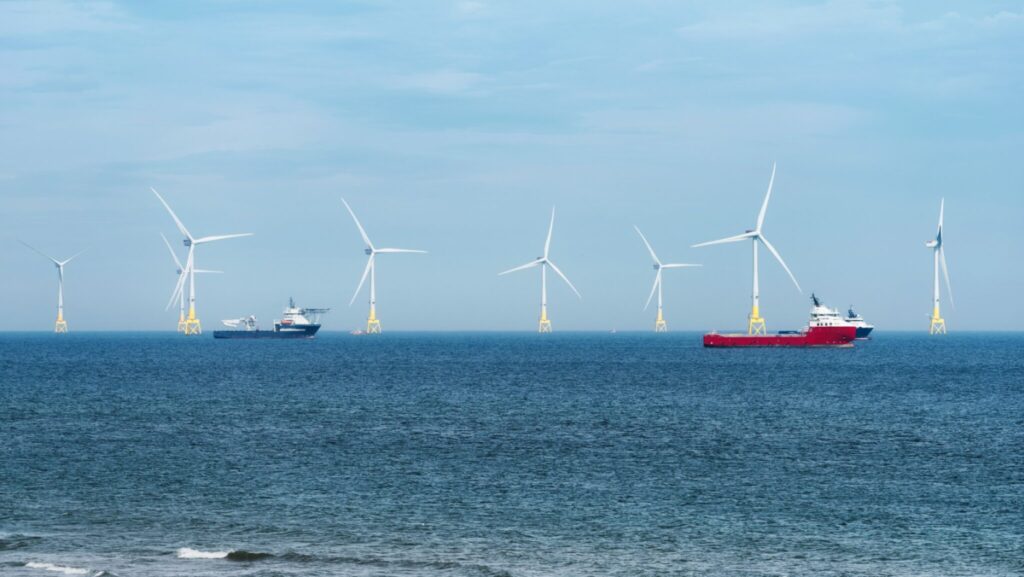RESEARCHERS are searching for new life for waste machinery in the renewable energy sector, reusing rare metals for new wind turbines.
New technology could provide a sustainable boost for the renewables and manufacturing sectors, following the development of a new process for recycling machinery at the end of its lifecycle.
The research is funded by the Industrial Biotechnology Innovation Centre (IBioIC).
Aberdeenshire-based SEM and researchers from the University of Edinburgh are developing a technique for extracting rare elements from waste alloy metals.

When combined with steel, rare metals such as niobium, tantalum and rhenium are critical for the strength and stability of high-impact machinery.
However, they are typically mined overseas using methods harmful to the environment.
By recovering the rare metals at the end of machinery’s lifecycle – including many of Scotland’s older wind turbines – manufacturers could re-use them to create new alloy metals instead of relying on imports of mined materials.
Currently, there is no option for extracting these rare metals in the UK, with companies having to send waste to one of the only existing facilities in Canada for processing.
But with use of waste materials supplied by Sheffield-based Advanced Alloy Services, a manufacturer of high-temperature alloys and metals for sectors, a process has been developed for extracting rare metals in a sustainable way.
After initially treating the alloy materials using a combination of bio-based chemicals to separate the different compounds, SEM’s DRAM system acts as a filter to ensure the resultant waste liquids are safe to dispose of.
The DRAM technology, which uses co-products from the distillation of malt whisky, was first developed to safely extract valuable metals from waste electronics.
Leigh Cassidy, lead scientist at SEM, said: “Metals like niobium, tantalum and rhenium are essential for the integrity of steel-based components commonly used in wind turbines and other high-temperature engines, but most of the stocks are still mined from the earth.
“Meanwhile, we have ageing infrastructure coming to the end of its lifecycle and substantial amounts of these rare metals which could be re-used.
“We have already worked with the University of Edinburgh on methods for safely extracting metals from waste electronics and saw an opportunity to explore a similar technique for separating the different metals in alloys.
“If used at scale, this type of process could be a big boost for UK manufacturing and unlock a new sustainable, circular supply chain where rare metals are recovered from existing alloys.
“Only small quantities of these rare metals are obtained as a result of the destructive mining processes, but with a process like this adopted at scale, there should be no need to cause additional harm to the planet.
“We are proud of the success achieved in this project and collaboration certainly played a key role.
“The project has contributed to the company’s mission of turning waste into value by focusing on resource recovery.
“We’re excited to continue exploring ways to collaborate with others and further advance solutions that showcase the art of the possible for industries looking to build upon sustainable processes.”
Dr Liz Fletcher, director of business engagement at IBioIC, added: “SEM is a great example of a business taking a bio-based process and applying it to multiple sectors to help companies achieve environmental goals.
“By joining forces with academic experts, SEM has developed potentially game-changing processes for sustainably treating various types of waste.
“Recycling at an industrial scale will be key to achieving net zero, while also reducing the carbon footprint and environmental damage associated with imported raw materials.”

